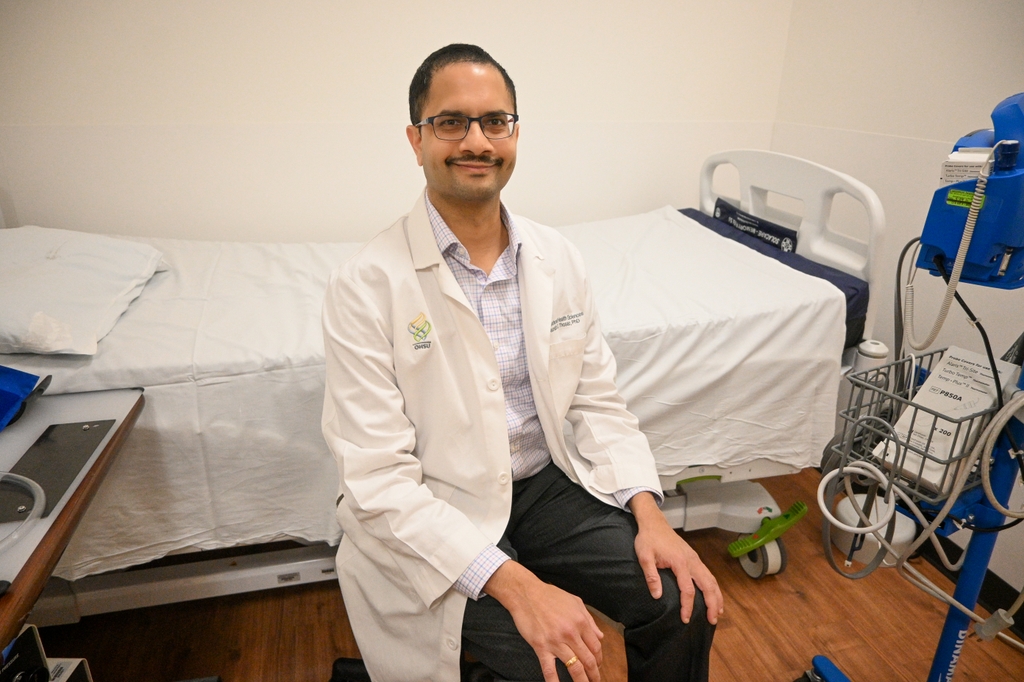
New research suggests that the circadian system in people with obstructive sleep apnea may disrupt blood vessel function overnight, which may help explain the higher risk of nighttime heart attacks in people with sleep apnea.
The research from Oregon Health & Science University suggests the importance of managing vascular risk in people with obstructive sleep apnea.
"This study clearly shows nighttime impairment of blood vessel function driven by the body's internal clock in people with untreated obstructive sleep apnea," said lead author Saurabh Thosar, Ph.D., a sleep scientist and associate professor in the Oregon Institute of Occupational Health Sciences at OHSU.
The study was published today in the Journal of the American Heart Association.
Scientists have long observed that in the general population, cardiovascular events such as heart attacks tend to occur within the first few hours after people wake up. In people with sleep apnea, however, these events occur more commonly across the night. Researchers say their new study suggests that impairment of vascular function across the night may be related.
The study involved 12 research participants with obstructive sleep apnea who stayed overnight for five days in a sleep laboratory at OHSU's Marquam Hill campus. Controlling for exercise, meals and sleep, and making measurements of vascular function across the entire 24-hour circadian cycle, researchers monitored blood vessel function using non-invasive ultrasound across 10 recurring sleep cycles of 5 hours, 20 minutes.
In each case, they found signals of the body's natural circadian rhythm — and how it was disrupted in people with apnea.
In fact, even when these measurements were made during wakefulness, researchers found blood vessel function was most impaired around 3 a.m. in people with apnea.
"This is the first study to show the circadian system impairs blood vessel function in people with obstructive sleep apnea," Thosar said. "In a future study, it will be important to test whether optimizing the timing of medication to protect vascular health can reduce cardiovascular risk across the night in people with apnea."
The standard treatment for apnea involves continuous positive airway pressure, or CPAP.
Thosar noted that some people with sleep apnea do not tolerate treatment using CPAP. Especially for those people, improving overnight vascular function may mean taking antioxidants or other related medications just before bed.
In addition to Thosar, co-authors include Nicole Bowles, Ph.D., Matthew Butler, Ph.D., Andrew McHill, Ph.D., Sean Rice, Ph.D., Jonathan Emens, M.D., and senior author Steven Shea, Ph.D., all of the Oregon Institute of Occupational Health Sciences at OHSU.
This study was supported by the National Heart, Lung, and Blood Institute, of the National Institutes of Health, under Award numbers R01HL125893, F32HL131308, and by the National Center for Advancing Translational Sciences, of the National Institutes of Health, under Award number UL1TR000128. The content is solely the responsibility of the authors and does not necessarily represent the official views of the NIH or other funders.






